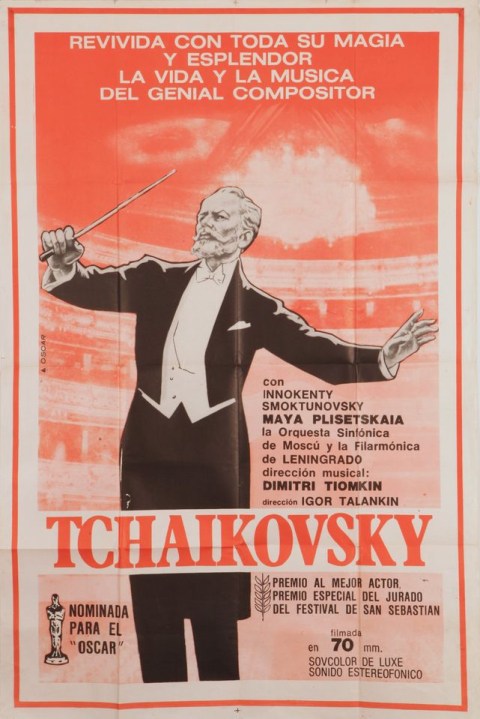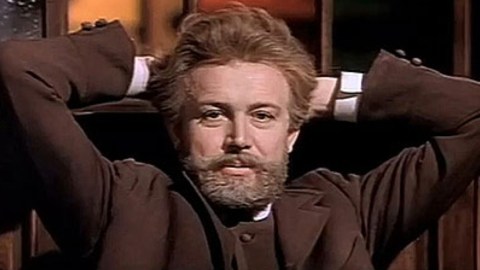17. 4. – 19. 4. 2026
Tchaikovsky

 Original title: Чайковский
Original title: ЧайковскийDirector: Igor Talankin
Production: 1969, USSR
Length: 157 min.
Screened:
KRRR! 2014: 70mm 2.2:1, Colours partly faded, MG, Spoken language: Russian, Subtitles: CzechAnnotation for KRRR! 2014
Such an important figure as the Russian composer Pyotr Ilyich Tchaikovsky was, somewhat surprisingly, only received one biographical adaptation in Russian (Soviet) cinema. This was undertaken in 1969 by director Igor Talankin, who cast Innokentiy Smoktunovsky in the lead role. This widely cast actor appeared, for example, in Andrei Tarkovsky's Mirror (1975) or in Nikita Mikhalkov's Black Eyes (1987). However, Talankin's Tchaikovsky is not only significant for Smoktunovsky's excellent acting performance. What is striking and special about the film is both the capture of a complex image of Tchaikovsky's personality and the translation of his works into a "stage form".
Tchaikovsky is not depicted here as a perfect personality. Despite the composer's genius, the film creates an image that, in addition to his positive qualities, also includes Tchaikovsky's struggle with inner demons, which often influenced his creative efforts. The process of creating musical works here often becomes a bad dream, literally suffering. The muses here are more in the form of nightmares, which is related to the composer's expressed inner discord. The deliberate non-idealization helps the film create a significantly relativizing view of Tchaikovsky not only as an absolutely fundamental and influential artist, but also as a psychologically not entirely stable individual. However, this does not reduce the quality of the film in any way: it is precisely the integrity given by the articulation of the composer's instability that is a fascinating aspect of Talankin's film.
And if the creative process was perhaps suffering for Tchaikovsky, this certainly did not apply to Talankin, who was bursting with ideas, especially during the aforementioned transfer of the composer's works into scenes. The passage where the ballet Swan Lake appears to Pyotr Ilyich as a dream speaks for itself. This scene of Tchaikovsky's work is not the only proof of the director's sense of virtuosity and ability to translate the character's thoughts into visual form. The director is full of similar ideas throughout the entire footage, clearly declaring how much music (not only Tchaikovsky's) is an equal partner to the image for him. The film's outstanding quality is also evidenced by the fact that it was awarded the Golden Globe for Best Foreign Language Film in 1971 and was also nominated for an Academy Award not only in the same category, but also for Best Music.